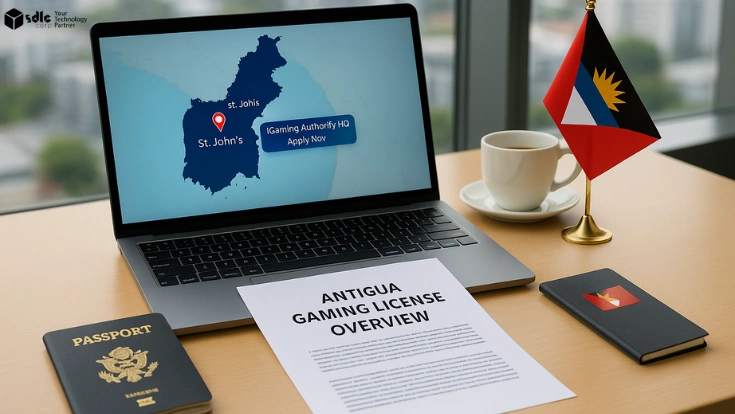Introduction
Mexico has emerged as a leading jurisdiction for gambling operators in Latin America. With a large population, increasing internet penetration, and favorable economic growth, the country presents exciting opportunities for both land-based and online gaming ventures. However, operating legally requires understanding and complying with Mexico’s regulatory framework for gambling.
In this comprehensive guide, you’ll learn everything about the Mexican gambling license, from legal requirements and licensing costs to compliance, payments, and practical steps to get started.
Why Start an Online Casino in Mexico?
Mexico presents a lucrative opportunity for gaming operators due to its:
Large population with growing internet access
Emerging middle class and increasing disposable income
Government interest in regulating and monetizing gambling
Strategic location bordering the U.S. with cross-border potential
Compared to European or North American jurisdictions, Mexico offers a lower cost of entry and a less saturated market, especially for online casinos and sportsbooks. The demand for localized and mobile-first gaming experiences continues to rise, making now an opportune moment to invest.
Overview of Gambling Regulations in Mexico
Gambling is legal and regulated under the Federal Gaming and Raffles Law of 1947 and its 2004 Regulations. Though the legislation is dated, it still governs the structure of gambling operations. However, reforms are being considered to adapt the law to the modern digital gaming environment.
Regulatory Authority
Dirección General de Juegos y Sorteos (DGJS) under SEGOB
Oversees licensing, compliance, inspections, and enforcement
Only Mexican entities or those partnered with one can apply for licenses.
Types of Gambling Licenses in Mexico
| License Type | Coverage | Application Through | Key Requirements |
|---|---|---|---|
| Online Casino License | Slots, blackjack, roulette, live dealer | DGJS |
|
| Sportsbook License | Online & retail betting on sports/esports | DGJS |
|
| Land-based Casino License | Tables, slots, bingo, entertainment | DGJS |
|
| Lottery & Raffle Permit | Lotteries, raffles (charity/state/private) | DGJS or Local Authorities |
|
Step-by-Step Licensing Process in Mexico

Below is a detailed roadmap to securing your license:
Step 1: Incorporate a Legal Entity
Register your company in Mexico.
Obtain a Registro Federal de Contribuyentes (RFC) tax identification number.
Step 2: Prepare Your Application Dossier
Required Documents:
Business Plan
Software Certifications
Technical System Architecture
AML and Responsible Gaming Policies
Financial Statements
Identification and Background Checks of Directors
Step 3: Submit the Application to SEGOB
Pay initial application fees.
Provide all supporting documents.
Step 4: Undergo Regulatory Review
SEGOB performs due diligence, including site visits and compliance assessments.
You may be asked for additional information or clarifications.
Step 5: Receive Your License Decision
Upon approval, you receive authorization.
You must then register your platform and software with regulators before launch.
Estimated Timeline: 3–6 months, depending on complexity and completeness of documentation.
Receive expert guidance at every stage of your gaming license journey from documentation to approval. Our legal and compliance specialists make the process seamless across top jurisdictions. Need assistance? Talk to our team
Costs and Fees to Expect
The cost of gambling license in Mexico 2025 varies depending on operation type and scale.
| License Type | Application Fee | Annual Maintenance Fee | Estimated Renewal Fee |
|---|---|---|---|
| Online Casino | $25,000 – $40,000 USD | $10,000 – $20,000 USD | ~$15,000 USD |
| Sportsbook | $20,000 – $35,000 USD | $8,000 – $15,000 USD | ~$12,000 USD |
| Land-Based Casino | $50,000+ USD | $25,000+ USD | ~$30,000 USD |
| Lottery/Raffle Permit | $5,000 – $10,000 USD | Varies | ~$3,000 – $5,000 USD |
Tip: Budget at least USD 150,000–300,000 to cover licensing and initial compliance.
Compliance Obligations After Licensing

Staying licensed requires strict adherence to reporting and operational rules.
Annual Reporting
Operators must submit:
Financial statements
Responsible gambling records
Player behavior data
Auditing Schedule
Regular inspections by DGJS
Mandatory technical audits from certified labs
License Renewal
Renewal required every 1–5 years
Fee: $10K–$30K depending on license
Submit application 60–90 days before expiration
Revocation Triggers
Falsified reports
AML violations
Unapproved game modifications
Player fraud or underage gambling
These obligations are essential to maintaining market integrity and operator reputation.
Payment Processing and Banking Considerations

Work with banks that support regulated gambling to avoid frozen funds.
Integrate payment gateways that support Mexican peso (MXN) and international currencies.
Use fraud prevention tools, especially for online casinos.
KYC/AML verification tools must meet Mexican regulatory standards.
Tip: Local banking support is key to maintaining liquidity and smooth operations.
Operators should also explore fintech and cryptocurrency options that comply with Mexican law to diversify payment channels and enhance user experience.
Advantages and Challenges of Operating in Mexico
Advantages
Fast-growing digital gaming population
Favorable GGR tax model (30%–35%)
Reasonable licensing cost
Cross-border potential with U.S. markets
Challenges
Outdated legislation (law from 1947)
Complex compliance expectations
Slow license approval timeline (6–12 months)
Need for strong legal and banking partners
Despite these challenges, Mexico remains one of the most promising emerging markets in the gaming industry.
Case Studies: Real-World Examples
1. Betmex Sportsbook (Fictional)
Launched via partnership with a local racetrack operator. Licensed in 2022, Betmex grew to 100K users within 18 months by targeting mobile-first bettors in Mexico City and Guadalajara.
2. Loteria Plus (Fictional)
A mobile lottery and raffle platform. They obtained state permits through DGJS and introduced weekly draws with 90%+ transparency rating from independent auditors.
These examples show the importance of partnerships, regulatory awareness, and localization for success in the Mexican gambling market.
Conclusion
If you’re planning to launch an online casino or gambling platform in Mexico, 2025 is the right time to act. The legal framework may be complex, but the market potential is substantial. From license types and costs to compliance and taxes, knowing what to expect gives you a competitive edge.
If you’re ready to enter this exciting market, consider consulting with experienced advisors to guide you through each step.
FAQ's
How long does it take to get a gaming license in Mexico?
It usually takes 3 to 6 months, depending on how complete your application is and how quickly regulators review it. Good preparation speeds things up.
Can foreign companies apply for a license?
Yes, but you’ll need to set up a Mexican legal entity or partner with a licensed local operator to meet legal requirements.
What does a gaming license in Mexico cost?
Expect total costs around $150,000 to $300,000 USD, including application fees, compliance expenses, and legal support.
Do I need certified gaming software?
Absolutely. Your games and platform must be certified by an approved lab to ensure fairness and security.
Are online casinos fully legal in Mexico?
Yes, but they’re regulated under the land-based casino framework. You must follow strict rules and get proper authorization from SEGOB.
Can I accept crypto payments?
You can, but you’ll need to comply with anti-money laundering laws and make sure your payment systems are transparent and approved.





